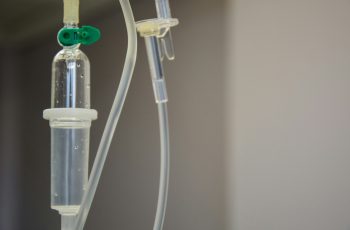Ad Blocker Detected
Our website is made possible by displaying online advertisements to our visitors. Please consider supporting us by disabling your ad blocker.
Are you curious about the benefits of testosterone replacement therapy for men? Look no further! In this article, we will explore the positive advantages that come with this treatment. From increased energy levels to improved mood and cognitive function, testosterone replacement therapy can truly make a difference in a man’s life. So, if you’re ready to learn more about how this therapy can enhance your overall well-being, read on!

This image is property of images.pexels.com.
The Basics of Testosterone Replacement Therapy
What is Testosterone Replacement Therapy?
Testosterone Replacement Therapy (TRT) is a medical treatment designed to increase testosterone levels in men who have low levels of this hormone. Testosterone is an essential hormone responsible for the development and maintenance of male sexual characteristics, as well as various aspects of overall health. TRT involves providing supplemental testosterone through different forms such as gels, patches, injections, or pellets.
How Does Testosterone Replacement Therapy Work?
TRT works by supplementing the body’s natural testosterone production, ensuring that testosterone levels are optimized. The treatment involves delivering exogenous testosterone, which is absorbed into the bloodstream and distributed throughout the body. This supplemental testosterone helps address the symptoms and health issues associated with low testosterone, providing numerous physical and emotional benefits to men.
Who is a Suitable Candidate for Testosterone Replacement Therapy?
Men who experience symptoms of low testosterone and have been diagnosed with low levels of this hormone by a healthcare provider are potential candidates for TRT. Common symptoms of low testosterone include reduced libido, erectile dysfunction, fatigue, depression, decreased muscle mass, and decreased bone density. It is important to consult with a qualified healthcare provider who specializes in hormone therapy to determine if TRT is appropriate for your individual case.
Potential Risks and Side Effects of Testosterone Replacement Therapy
Like any medical treatment, TRT does pose potential risks and side effects. Some possible side effects include acne, oily skin, fluid retention, increased red blood cell count, and breast enlargement (gynecomastia). It is crucial to work closely with a healthcare provider experienced in testosterone therapy to monitor and manage any potential side effects. It is also essential to discuss any preexisting conditions, such as prostate cancer or heart disease, as TRT may not be suitable for individuals with certain medical conditions.
Physical and Emotional Benefits of Testosterone Replacement Therapy
Increased Muscle Mass and Strength
One of the primary physical benefits of TRT is increased muscle mass and strength. Testosterone plays a crucial role in protein synthesis, which is essential for muscle growth and repair. By optimizing testosterone levels, TRT can enhance the body’s ability to build and maintain lean muscle mass, leading to improved physical performance and strength.
Improved Bone Density
Testosterone is known to promote bone health and density. Low levels of testosterone can lead to a loss of bone density and an increased risk of osteoporosis. However, TRT helps combat these effects by increasing bone mineral density and reducing the risk of fractures and osteoporosis. By improving bone health, TRT can contribute to overall mobility and reduce the risk of bone-related injuries.
Enhanced Libido and Sexual Performance
Testosterone is closely associated with sexual function and desire in men. Low testosterone levels can significantly impact libido and sexual performance, leading to reduced satisfaction and confidence. TRT can address these issues by increasing testosterone levels, thereby improving libido, sexual desire, and overall sexual function.
Reduced Fatigue and Increased Energy Levels
Chronic fatigue and low energy levels are common symptoms of low testosterone. TRT can alleviate these symptoms by optimizing testosterone levels, resulting in increased energy levels and a reduction in fatigue. With improved energy, individuals may experience enhanced productivity, mental clarity, and an overall improvement in their daily activities.
Improved Mood and Cognitive Function
Testosterone plays a crucial role in mental well-being, affecting mood, cognitive function, and overall mental health. Low testosterone levels have been linked to symptoms of depression, irritability, and decreased cognitive abilities. TRT can help improve these aspects by restoring testosterone levels to a more optimal range, leading to enhanced mood, cognitive function, and overall mental well-being.

This image is property of images.pexels.com.
Effects of Testosterone Replacement Therapy on Cardiovascular Health
Decreased Risk of Heart Disease
Research suggests that TRT may have a positive impact on cardiovascular health. Maintaining optimal testosterone levels through TRT has been associated with a decreased risk of heart disease in men. Testosterone plays a role in regulating cholesterol levels, blood pressure, and blood vessel health, all of which contribute to cardiovascular health.
Improved Blood Pressure Levels
Low testosterone levels have been associated with high blood pressure, a significant risk factor for heart disease. TRT can help address this issue by optimizing testosterone levels, which may result in improved blood pressure regulation. By keeping blood pressure within a healthy range, TRT can contribute to overall cardiovascular health.
Reduced Risk of Diabetes
Studies have shown a potential link between low testosterone levels and an increased risk of developing type 2 diabetes. TRT can mitigate this risk by optimizing testosterone levels and improving insulin sensitivity. Improved insulin sensitivity aids in better blood sugar regulation, reducing the risk of developing diabetes or helping manage existing diabetes more effectively.
Potential Impact on Metabolic Health
Increased Insulin Sensitivity
Insulin sensitivity refers to the body’s ability to respond to insulin and regulate blood sugar levels. Low testosterone levels have been associated with reduced insulin sensitivity, increasing the risk of insulin resistance and metabolic disorders like type 2 diabetes. TRT can help improve insulin sensitivity, contributing to better blood sugar control and overall metabolic health.
Weight Management and Body Composition
Testosterone plays a role in regulating body fat distribution and muscle mass. Low testosterone levels can contribute to increased body fat accumulation, particularly in the abdominal region. TRT can aid in weight management by optimizing testosterone levels, leading to a decrease in body fat and an increase in lean muscle mass. This can positively impact body composition and contribute to an overall healthier physique.
Potential Benefits for Men with Metabolic Syndrome
Metabolic syndrome is a cluster of conditions, including high blood pressure, elevated blood sugar levels, abnormal cholesterol levels, and excessive body fat around the waist. Low testosterone levels have been associated with an increased prevalence of metabolic syndrome in men. TRT may provide benefits in managing metabolic syndrome by optimizing testosterone levels and indirectly addressing the underlying risk factors associated with this condition.

Testosterone Replacement Therapy and Age-Related Symptoms
Alleviating Symptoms of Andropause
Andropause, often referred to as “male menopause,” is a term used to describe the natural decline in testosterone levels that occurs with aging. This decline can lead to various symptoms, including fatigue, reduced libido, mood changes, and decreased muscle mass. TRT can help alleviate these symptoms by restoring testosterone levels to a more optimal range, improving overall vitality and quality of life.
Improvement in Age-Related Decline of Physical and Mental Function
As men age, they may experience a decline in physical and mental function. Testosterone plays a vital role in maintaining muscle strength, cognitive function, and overall vitality. TRT can help slow down the age-related decline by optimizing testosterone levels, leading to improved physical performance, cognitive abilities, and overall well-being.
Enhanced Overall Quality of Life
By addressing the symptoms of andropause and age-related decline, TRT can significantly enhance the overall quality of life for men. By restoring testosterone levels to more optimal ranges, individuals may experience increased energy, improved mood, better cognitive function, enhanced sexual well-being, and an overall sense of vitality and well-being.
Optimizing Testosterone Levels for Better Fitness
Increased Exercise Performance and Recovery
Testosterone plays a significant role in muscle development, exercise performance, and recovery. Low testosterone levels can hinder strength gains, endurance, and post-workout recovery. By optimizing testosterone levels through TRT, individuals may experience improved exercise performance, faster recovery, and enhanced muscle growth.
Muscle Growth and Development
Testosterone is a key hormone for muscle growth and development. Low testosterone levels can hinder muscle growth and may lead to muscle loss over time. TRT can help by optimizing testosterone levels, allowing for better muscle protein synthesis and promoting muscle growth and development.
Optimal Training Adaptations
Optimal testosterone levels contribute to better training adaptations, including improvements in strength, power, and endurance. By addressing low testosterone levels through TRT, individuals can optimize their training potential and achieve better fitness outcomes.
Potential Benefits for Men with Hypogonadism
Restoring Testosterone Levels in Men with Hypogonadism
Hypogonadism is a medical condition characterized by low testosterone levels. TRT is a primary treatment option for men with hypogonadism, as it helps restore testosterone levels to a more normal range. By addressing the underlying cause of hypogonadism, TRT can alleviate symptoms associated with this condition and improve overall well-being.
Improvement in Symptoms of Hypogonadism
Hypogonadism can cause a range of symptoms, including fatigue, reduced libido, erectile dysfunction, depression, and decreased muscle mass. TRT can help improve these symptoms by raising testosterone levels and addressing the underlying hormonal imbalance involved in hypogonadism.
Positive Impact on Reproductive Function
Testosterone is crucial for reproductive health in men. Low testosterone levels can negatively impact sperm production, fertility, and overall reproductive function. TRT can help address these issues by restoring testosterone levels and positively impacting reproductive health.
Testosterone and Risk of Osteoporosis
Increased Bone Strength and Density
Osteoporosis is a condition characterized by reduced bone density, making bones more prone to fractures. Testosterone plays a vital role in maintaining bone health, and low testosterone levels can contribute to an increased risk of osteoporosis. TRT can help improve bone strength and density by optimizing testosterone levels, reducing the risk of fractures and promoting better overall bone health.
Prevention and Treatment of Osteoporosis in Men
TRT can play a significant role in the prevention and treatment of osteoporosis in men. By addressing low testosterone levels through TRT, individuals can mitigate the risk of osteoporosis and potentially slow down the progression of this condition.
The Role of Testosterone in Mental Health
Potential Effects on Depression and Anxiety
Testosterone levels have been linked to mental health, with low testosterone potentially contributing to symptoms of depression and anxiety. TRT can have a positive impact on mental health by restoring testosterone levels to a more optimal range, potentially reducing symptoms of depression and anxiety and improving overall emotional well-being.
Cognitive Function and Memory Enhancement
Testosterone plays a role in cognitive function, memory, and overall brain health. Low testosterone levels have been associated with cognitive decline and memory impairment. By optimizing testosterone levels through TRT, individuals may experience improved cognitive function, enhanced memory, and better overall brain health.
Improvement in Overall Mental Well-being
Optimal testosterone levels have been shown to contribute to overall mental well-being. By addressing low testosterone levels through TRT, individuals may experience improved mood, reduced irritability, increased motivation, and a general sense of well-being.
How does Testosterone Replacement Therapy Compare to Naturally High Testosterone Levels in Men?
Testosterone Replacement Therapy aims to restore normal levels of the hormone in men with low testosterone. However, naturally high testosterone levels in men offer unique benefits. These include increased muscle mass, improved bone density, and a higher sex drive. The benefits of high testosterone cannot be perfectly replicated with therapy.
Considerations for Testosterone Replacement Therapy
Finding a Qualified Healthcare Provider
When considering TRT, it is crucial to find a qualified healthcare provider who specializes in hormone therapy. A knowledgeable and experienced healthcare professional can assess your individual case, determine if TRT is suitable for you, and guide you through the treatment process.
Understanding Potential Risks and Side Effects
It is essential to have a comprehensive understanding of the potential risks and side effects associated with TRT. These may include acne, oily skin, fluid retention, increased red blood cell count, and gynecomastia. Working closely with a healthcare provider will help to monitor and manage any potential side effects and make informed decisions regarding the treatment.
Monitoring and Managing Testosterone Levels
Regular monitoring of testosterone levels is critical during TRT. This allows healthcare providers to adjust the treatment and dosage to ensure optimal levels are maintained. Close monitoring also helps assess the effectiveness of TRT in addressing the desired goals and managing potential risks associated with the treatment.
In conclusion, Testosterone Replacement Therapy (TRT) offers numerous physical, emotional, and mental benefits to men with low testosterone levels. From improving muscle mass and bone density to enhancing sexual performance and cognitive function, TRT can provide a comprehensive solution to the symptoms and health issues associated with low testosterone. However, it is crucial to work with a qualified healthcare provider experienced in hormone therapy to ensure appropriate monitoring, dosing, and management of potential risks and side effects. With careful consideration and guidance, TRT can optimize testosterone levels and significantly improve overall well-being, vitality, and quality of life for men.



